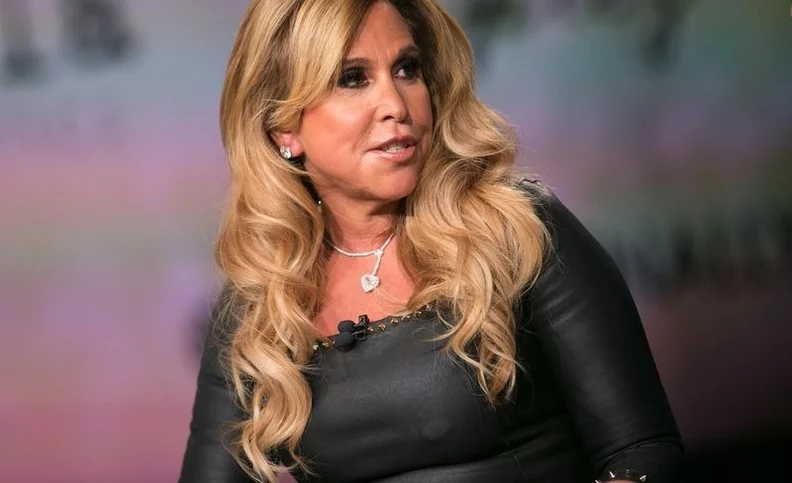The Auburn Hills-based company and its domestic subsidiaries filed for Chapter 11 protection in the U.S. Bankruptcy Court for the Middle District of Tennessee on Thursday in hopes of clearing Dura from Tilton's investment company's obligations to repay a bond insurer in an unrelated legal dispute.
Tilton reached a legal settlement in May with bond insurer MBIA Inc. The agreement involved three bankrupt investment funds Tilton and MBIA had created to originate loans for distressed companies owned by her turnaround firm.
"Someone has probably put a claim on the assets of Dura, and it's holding up a sale of some shape or form," Hudson said. "If everyone agreed upon a value, we wouldn't be in bankruptcy court. This seems to be a creative way of trying to negotiate a deal that probably should be done out of court."
A source familiar with Dura's situation that spoke to Crain's on the condition of anonymity called the filing "financial engineering."
Generally, bankruptcy protection is reserved for unprofitable companies or those headed for insolvency, Hudson said. Dura is profitable. Dura generated revenue of $1.4 billion in 2018, according to estimates by Automotive News. It generates around $90 million in earnings before interest, tax, depreciation and amortization, according to a Bloomberg report.
"I was confused by the filing and further confused when I see the company's performance," Hudson said. "I get the sense that this bankruptcy will be challenged in court and that's probably why they filed with Middle District of Tennessee instead of Eastern District in Michigan where it belongs, in hopes of getting a judge less experienced in these kinds of cases."
According to the filing, Tilton is looking to sell the profitable company to herself through the court. Tilton committed $77 million of debtor-in-possession financing to purchase Dura's assets and take on all employee, customer and trade obligations through an investment arm called Ark II CLO 2001-1 Ltd.
The company said in a press release it expects the sale of Dura to Tilton's other entity to be completed within 120 days. Day-to-day operations for the supplier are not expected to be impacted.
Tilton has been embroiled in litigation for years. In 2017, the self-described turnaround queen beat a fraud charge brought by the U.S. Securities and Exchange.
Filed in March 2015, the SEC alleged Tilton and her various investment companies misled investors about the values of risky tranches of corporate loans while collecting nearly $200 million in fees.
The SEC focused on Tilton's investment companies collectively known as the Zohar Funds, which held portfolios of loans issued to distressed firms. The SEC had charged that Tilton and her companies falsely led investors to believe that she and her companies made impartial and ethical valuations of the loan assets. According to the SEC, the valuations didn't fall even though many of the distressed firms made partial or no interest payments to the funds for several years.
Tilton countered with her own lawsuit against the SEC and tried to take the case to the U.S. Supreme Court in an unsuccessful bid to have the SEC's case declared unconstitutional.
Tilton ultimately prevailed when the administrative law judge ruled in her favor. She also beat a racketeering case brought forth by the funds in December 2017.
But the Zohar funds remain a problem, as a dispute arose between Tilton and the bond insurer MBIA. Zohar III Corp., which raised about $2.5 billion from investors, filed for bankruptcy in March 2018. Tilton used a similar description to Dura as why she sought bankruptcy protection for Zohar.
She said in the legal filing that litigation over Zohar had blocked her from selling one company and financing several others, but the funds retain "tremendous value" and are worth "billions of dollars," reported Reuters.
Tilton ultimately settled the Zohar case with MBIA by agreeing to step aside as head of the funds for at least 15 months, only allowing to resume her position if she can repay MBIA and other creditors with proceeds from selling or refinancing some of her portfolio companies.
But MBIA, as a Zohar investor, is countering Tilton's move and filed a motion in the Zohar bankruptcy case hours after Dura's filing in Tennessee to move the case to Delaware. The fund claims in a court filing in U.S. Bankruptcy Court in Delaware that Tilton is violating the terms of the settlement by placing Dura into bankruptcy.
The agreement states Tilton is to repay Zohar "whether through sale or refinancing" of portfolio companies, including Dura. The fund alleges Tilton "ignored alternative third-party financing that would have avoided a chapter 11 filing."
"The only reason the Zohar funds can fathom that the Dura debtors filed the Dura Chapter 11 Cases in Tennessee — which is neither their operating headquarters nor the jurisdiction of their formation — is that they did so at the behest of Ms. Tilton to avoid and circumvent the bargain she struck in the Delaware Bankruptcy Court ...," the funds said in the Delaware motion. "Ms. Tilton and the Dura debtors should not be permitted to do such violence to the linchpin of the Zohar funds' bankruptcy cases and the groundwork that has already been laid in Delaware to continue the monetization process for all of the portfolio companies, including (Dura)."
It's unclear when or if the Delaware bankruptcy judge will rule on Zohar's motion.
But if Tilton succeeds in Tennessee in prying away that obligation, she may be able to secure a higher acquisition price for Dura and, ultimately, herself, Hudson said.
"I don't know Lynn personally, but there's a history here," Hudson said. "There's a history here of … being very creative in using the bankruptcy court. Some have gone in her favor, so she's back at it and this seems to be another attempt at trying to negotiate a deal that probably should be done out of court."
